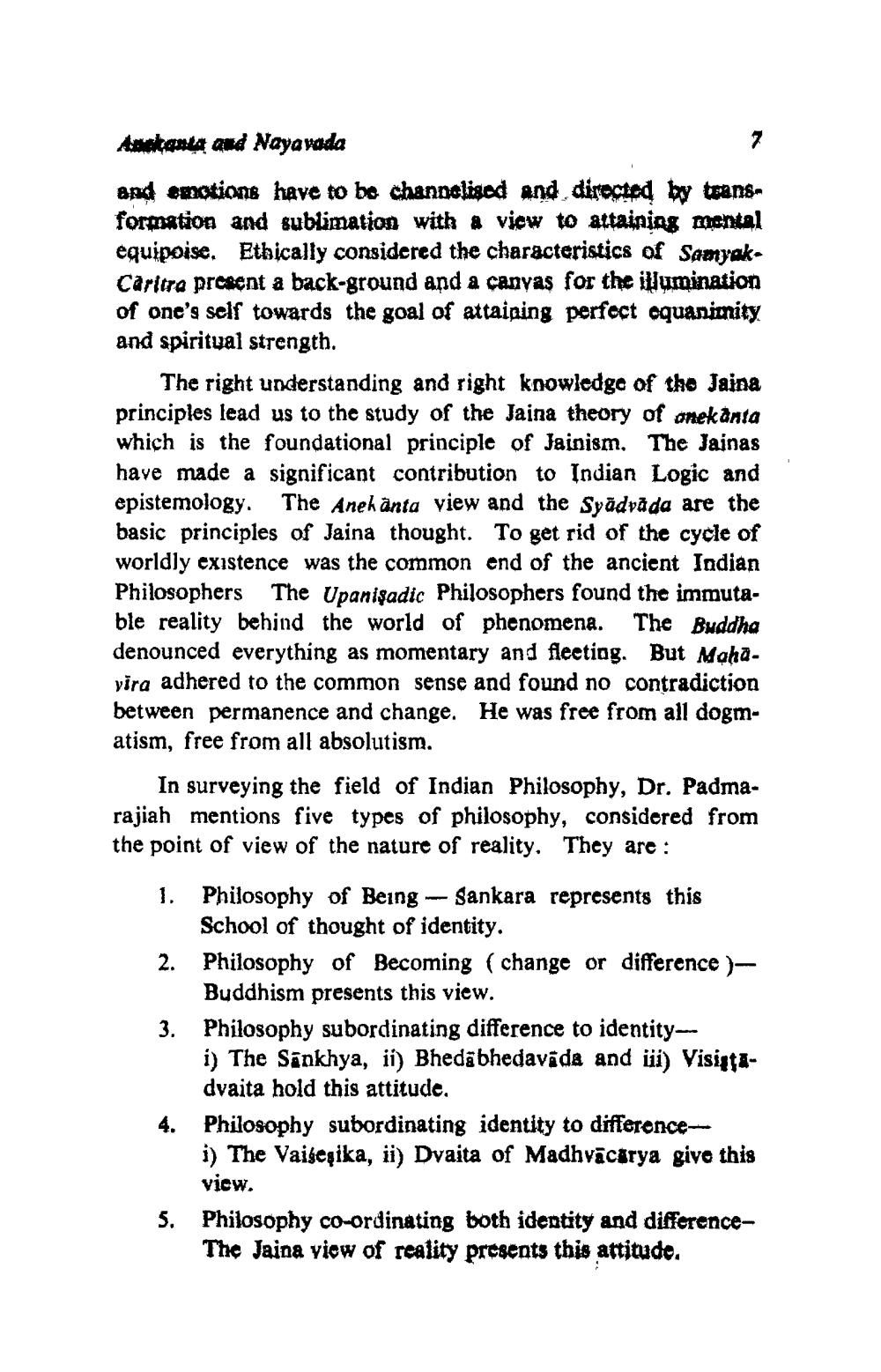________________
Annland and Nayavada and smotions have to be channclised and directed by transformation and sublimation with a view to attaining mental equipoise. Ethically considered the characteristics of Samyak. Caritra present a back-ground and a canyas for the illumination of one's self towards the goal of attaining perfect equanimity and spiritual strength.
The right understanding and right knowledge of the Jaina principles lead us to the study of the Jaina theory of onekanta which is the foundational principle of Jainism, The Jainas have made a significant contribution to Indian Logic and epistemology. The Anehänta view and the Syädvāda are the basic principles of Jaina thought. To get rid of the cycle of worldly existence was the common end of the ancient Indian Philosophers The Upanişadic Philosophers found the immutable reality behind the world of phenomena. The Buddha denounced everything as momentary and fleeting. But Mahavira adhered to the common sense and found no contradiction between permanence and change. He was free from all dogmatism, free from all absolutism.
In surveying the field of Indian Philosophy, Dr. Padmarajiah mentions five types of philosophy, considered from the point of view of the nature of reality. They are :
1. Philosophy of Being -- Sankara represents this
School of thought of identity. 2. Philosophy of Becoming (change or difference -
Buddhism presents this view. 3. Philosophy subordinating difference to identity
i) The Sankhya, ii) Bhedá bhedavada and iii) Visita
dvaita hold this attitude, 4. Philosophy subordinating identity to difference
i) The Vaisepika, ii) Dvaita of Madhvacarya give this
view. 5. Philosophy co-ordinating both identity and difference
The Jaina view of reality presents this attitude.




